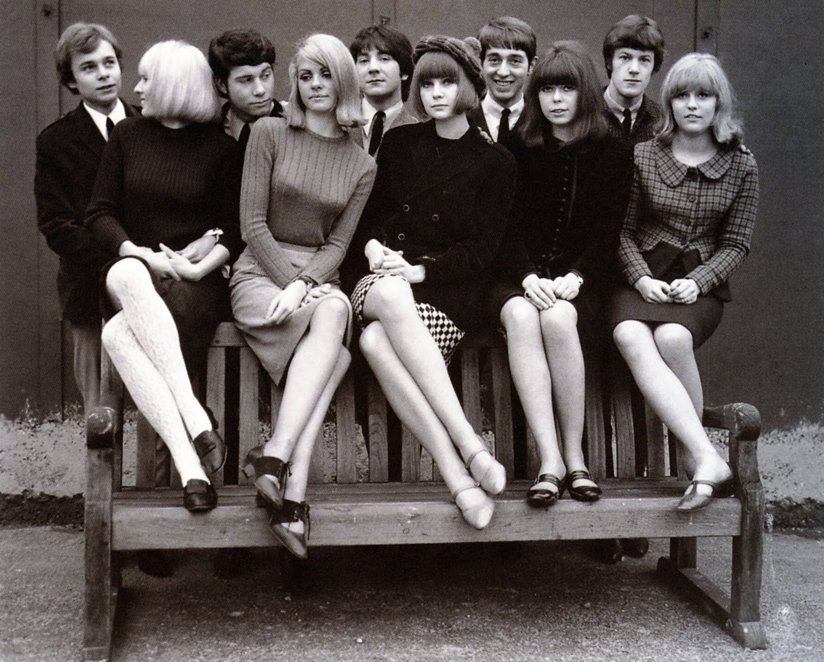
-
HOME
-
WHAT IS STANDOur Mission Our Values Our Help Contact
-
WHAT WE FIGHT FORReligious Freedom Religious Literacy Equality & Human Rights Inclusion & Respect Free Speech Responsible Journalism Corporate Accountability
-
RESOURCESExpert Studies Landmark Decisions White Papers FAQs David Miscavige Religious Freedom Resource Center Freedom of Religion & Human Rights Topic Index Priest-Penitent Privilege Islamophobia
-
HATE MONITORBiased Media Propagandists Hatemongers False Experts Hate Monitor Blog
-
NEWSROOMNews Media Watch Videos Blog
-
TAKE ACTIONCombat Hate & Discrimination Champion Freedom of Religion Demand Accountability
Is Man Just Another Animal?
(A Scientologist’s Perspective)
I grew up in the 1950s and ’60s with the science versus religion debate in full swing. It was and is the major philosophical argument of the modern era and I found both sides electrifying and puzzling at the same time. How was the universe created? What was the nature of Man? Age-old questions were being caught up in a fresh storm.

For example, my grandmother—a devout Catholic who played the organ at Sunday mass—indoctrinated and soothed me with the unknowable mysteries of the Holy Trinity, while my grandfather, a star-gazing, atheistic, university-educated civil engineer negated them with the stark truths of the Big Bang theory and everything-can-be-explained-by-“science” argument. Man was just a more highly developed animal and the sooner we accepted that fact, the happier we’d all be, he insisted. My grandfather and I agreed to disagree after I “cleverly” asserted that there had to be something there before the Big Bang. But even with this little controversy brewing, life was still pretty simple back then.
Until, enter stage left: the advent of modern psychology, that pseudo-science wannabe and its immersion or perhaps more aptly intrusion into the mainstream of contemporary society.

After the signing of the Community Mental Health Act of 1963 by President Kennedy came the inexorable advance of other “mental health” initiatives in America. Psychology suddenly appeared not just in community health centers, but as college majors, and then into public school curriculums and today into the public welfare system. Like a red algae bloom on the rampage, psychology and psychiatry spread across the globe, bringing with them theories and hypotheses asserted and accepted, but never proven, about the nature of Man. Obviously, somebody was going down in this war and the human spirit seemed to be taking the hit, since the media and “scientific” publications like the Diagnostic and Statistical Manual of Mental Disorders (DSM) said it didn’t exist, except as impulses in the brain….
No. I rejected it. I knew I was something more and I was determined to find out what. (Besides, I knew that even mice were not that dumb.)
So, having ridden the wave of pop-psychology into the State University of New York in 1974, as an education major, I remember having a sudden moment of realization while reading a psychology text for a class assignment. Apparently, Pavlov had proven we were basically nothing more than stimulus-response animals. This was mainly because dogs could be taught to salivate on command (and a few other things having to do with bells and mice in a maze).
Remembering my former arguments with my grandfather, I experienced a moment of profound letdown. Really? Is that all I am? A stimulus-response animal with no divine spark of creativity—just a breathing reaction to the environment around me? No. I rejected it. I knew I was something more and I was determined to find out what. (Besides, I knew that even mice were not that dumb.)

But, I also wondered why they couldn’t both be right—the laws of the physical universe and the spiritual nature of Man that transcends that universe. After some years of searching, I found the solution to the riddle in Scientology: they can and are. Man is a spiritual being inhabiting a body. Upon further study, I found that, indeed, many if not most world religions and many philosophies held a similar view:
“According to Hinduism, man is essentially a soul that uses its body and mind as instruments to gain experience.”
“According to the Roman Catholic view, the image of God is something added to human nature. Man is a unity composed of an immortal soul and a mortal body which together constitute the whole of his humanity.”
“The rabbis attributed a dual nature to human beings… human beings are the only creatures whose souls are from heaven and whose bodies are from earth.”

“Pythagoras held that the soul was of divine origin and existed before and after death. Plato and Socrates also accepted the immortality of the soul, while Aristotle considered only part of the soul, the noûs, or intellect, to have that quality. Epicurus believed that both body and soul ended at death. The early Christian philosophers adopted the Greek concept of the soul’s immortality and thought of the soul as being created by God and infused into the body at conception.”
It seems that men of philosophy and religion have long held the view that there is a spiritual component to Man. It is something that sets him apart from everything else in his world. Even when he didn’t understand the mechanics of the universe, Man somehow knew that he was different, godlike or of god. And science and psychology have yet to prove otherwise.
For the last 50-plus years, the world has been assaulted with a materialistic, amoral, chaos-created version of Man. He is the impermanent, one-lifetime only, creation of inorganic chemical reactions, whose dreams arise from his brain cells. His problems and travails can be treated with a pill.
It is time to get back to our roots and return to the ranks of the great thinkers who brought us so far forward.









